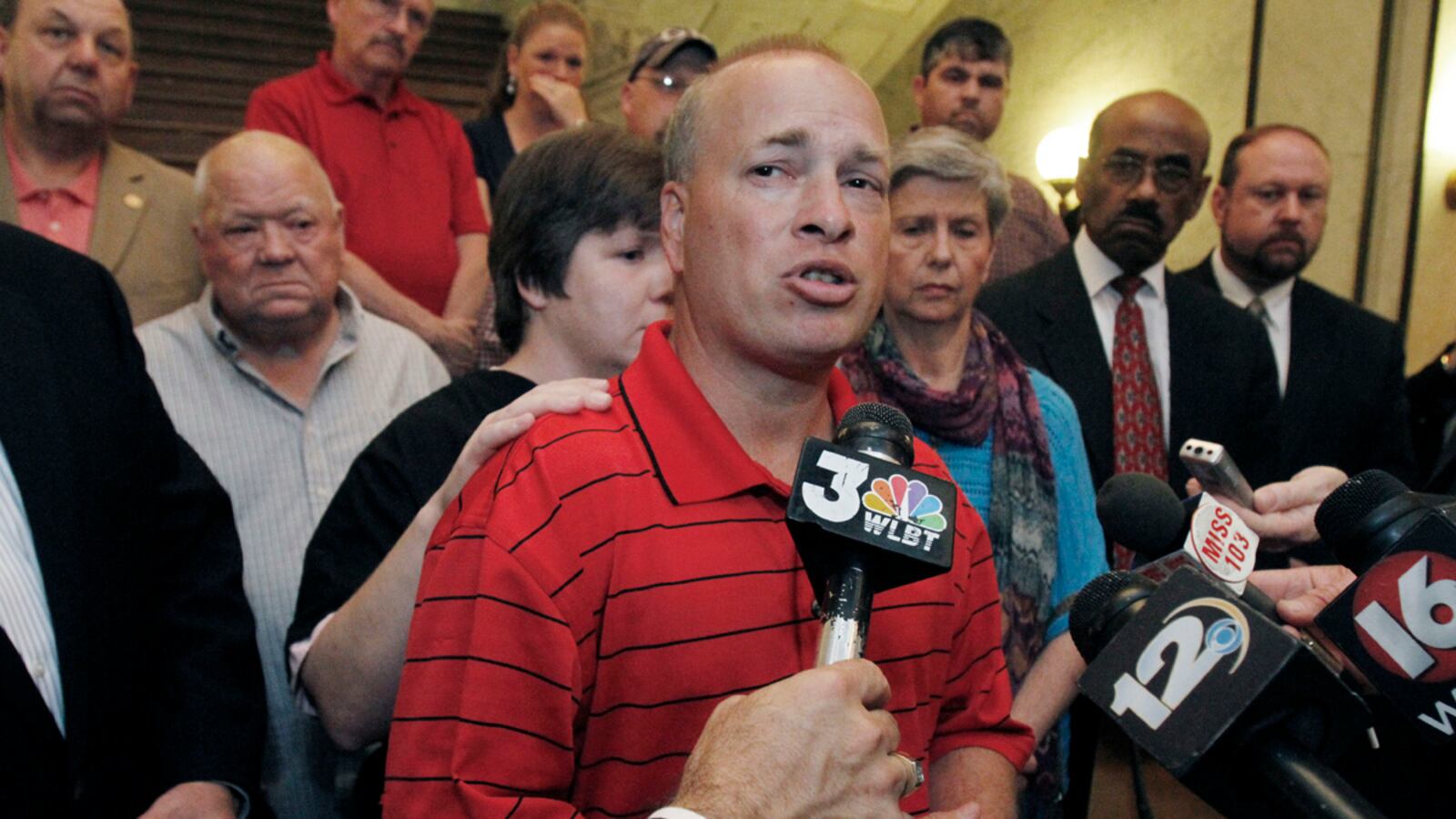My experiences and my story are not unique. I am just one of the victims of the Haley Barbour pardons. For every outrageous story you have heard about murderers and felons that are now free without restriction, there are even more stories that have yet to be told. Here is mine.
In the summer of 1993, I was 25 years old. I had the opportunity to reconnect with a lifelong friend, Tammy Gatlin, who had moved home to Mississippi to live with her parents.
Tammy Ellis Gatlin was still married to David Gatlin, and was pregnant with his child. From the time she moved home until the time she gave birth to their son, David only tried to contact her once—and it was not to check on her well-being. The next encounter she had with David would be the morning months later when he shot her in the head while she was holding their baby.
David Gatlin’s crimes were not “heat of passion,” they were premeditated murder. He’d sold everything he had, rented a car, bought a gun, and left Macon, Ga., headed for Mississippi. He knew what he was coming to do—he even told police that he thought about killing Tammy and then turning the gun on himself.
When he arrived, he followed Tammy around. The next day, he was looking for her when she came over to my home to pick me up to go shopping with her for things for the baby. After he spotted her car, he went to buy fireworks. He came back and knocked on my door. He asked to use my phone and then if I wanted to buy some fireworks. When I answered no to both questions, he pulled out a gun and forced his way in.

I didn’t know who he was—I thought I was being robbed. It wasn’t until Tammy saw his face and called his name that I knew. From that point, I knew what was going to happen. He lit the fireworks and, as they went off, he shot her in the head just inches from his child’s head. Then he turned to shoot me and I turned my head. The bullet entered one side of my head and exited the other. In his statement to the police, David said he stood over me until I closed my eyes. He then left my house after disabling the fire alarms that were ringing because of the fireworks. His infant son was lying on his dead mother, covered with her blood. He later surrendered to a friend who was a police officer in Jackson, Miss., about 20 minutes away. He told his friend: “I killed two people in Brandon.”
He pleaded guilty and was sentenced to life plus 30 years. David’s true sentence ended up being just a fraction of that. He was incarcerated for 17 years, six months, and six days; of that, he served more than two years of “hard time” by serving as a trustee at the Governor’s Mansion.
Haley Barbour has shown by his actions that he does not care about the victims of the people he pardoned. He put more stock in the time he spent with the five mansion trustees who served him well. And why wouldn’t they? He was their golden ticket out of jail. The loved ones of the pardoned murderer’s victims were never given the chance to tell their side of the story. Governor Barbour says that he is comfortable with the pardons he issued. That must be nice. The majority of the people in Mississippi are not.
Fast forward to today. Today I sat in a courtroom of the Supreme Court of Mississippi not to decide the guilt or innocence of David Gatlin, because that was decided long ago. Today, along with many other victims’ family members, I sat and hung on to every word, hoping that justice would make its way back into the justice system. According to Mississippi’s state Constitution, “No pardon shall be granted unless the petition is published for 30 days.” The majority of the 200-plus pardons that were issued in the last days of Barbour’s term did not meet this requirement.
In our society we want to believe in the absolutes of what is right and what is wrong. One of two things will happen when the justices hand down their decision. They will either uphold the state Constitution—or say that the governor can bypass the rights of the people set forth in that document.
Everyone should be mindful of the decision that comes out of the Mississippi Supreme Court. If it is found that the people’s rights listed in that Constitution can be circumvented, what will keep the same thing from happening again?






